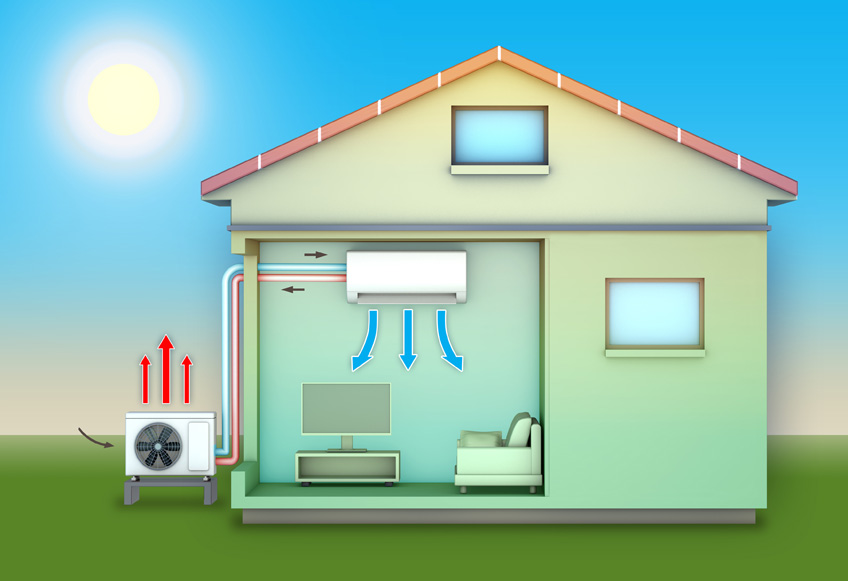Hot Enough for You? As of this writing, the Front Range is going through a three-day heat wave of temperatures well above 100° F. And there’s likely more to come. So if you’d rather be comfortable in your home or office, why not just pump the heat away?
Just like a heat pump warms your house in the winter, it keeps it cool in summer.
How a Heat Pump Works
A heat pump uses elementary physics to do its job. When you need heat in the winter, it takes outside air, no matter how cold it is, and pulls its latent energy out to warm your home. And there’s plenty of it, even on the coldest days and nights since it doesn’t run out of energy to harvest until the temperature reaches absolute zero (roughly -460°F). Ten below? Piece of cake.
In the summer, a heat pump reverses direction, squeezing the heat out of indoor air and replacing it with cold, much the same way your refrigerator does. Both processes are deceptively simple, have been around for over 100 years, and heat pump technology has improved so much over the past few years that dozens of manufacturers have efficient, reliable heat pumps that cost less than a typical central air system. And they are so efficient that they also save on your utility bill.
Learn more about how heat pumps work and save both energy and money on the This Old House website’s video.
Heat Pumps Save Year-Round
Not only are heat pump operating costs a fraction of central air conditioning, but a single whole -house heat pump is also much more economical that a gas-fired furnace or electric radiant heat. And since they use clean electric energy, they’re much better for the environment.
Choosing a Heat Pump for Your Home or Business
Choosing the right heat pump depends first on how you plan to use it.
Do you want a ducted whole-house system that uses your existing (or planned) ductwork and replaces your existing components? That will take a larger, higher-capacity heat pump.
Or do you want to heat and/or cool a specific area like a shed, an auxiliary dwelling, or single room? Then a ductless mini split fits the bill, both functionally and economically. Mini splits can also be used to replace room air conditioners and radiators when the expense and hassle of installing ductwork argues against it.
You can learn more about choosing the right heat pump in this article on the Allstar Electrical website.
Need Help? Call a Pro
It seems that heat pump technology is changing faster than the weather it’s designed to tame, which is good since we live in Colorado and know how important it is to deal effectively with our freaky forecasts. But if you’re considering a heat pump for your central HVAC system or mini splits for spot heating and cooling, the many new and emerging choices can be a little overwhelming, especially when considering what can be a big investment.
That’s where the pros at Allstar Electrical Services can help.
We’ve installed hundreds of heat pumps, so if you’re considering investing in heat pumps, or adding an EV charging station, switching to electric appliances, or any project that uses electricity, large or small, let Allstar Electrical Services help you assess the costs and benefits of such a decision.
Give us a call at 303.399.7420 or visit our website. We’ve served the Front Range for over 20 years, are top-rated by the Better Business Bureau, and a preferred contractor by Angi’s® Home Advisor.

